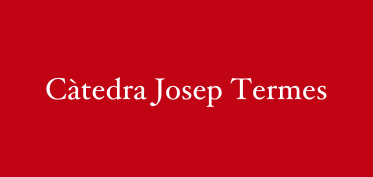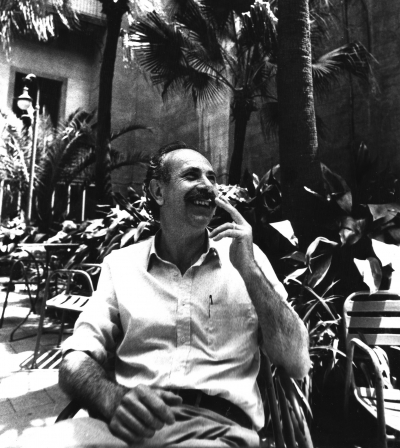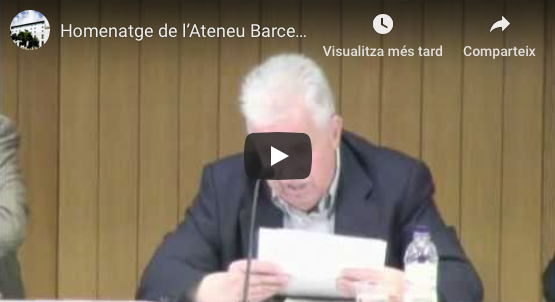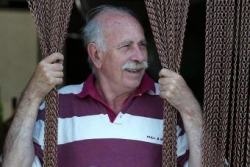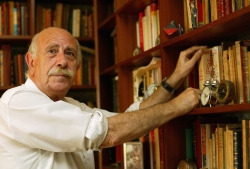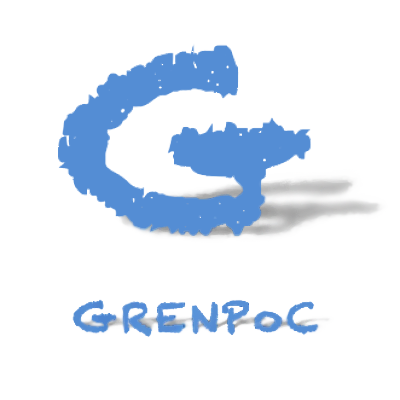Josep Termes
Life
Josep Termes Ardèvol was born in Barcelona on 27th July 1936, some days after the beginning of the Spanish Civil War. This conflict and the following 36 years long Franco’s dictatorship determined his vital, academic and ideological career, in the same way that happened with most of his coetaneous.
He studied Pharmacy when he was young (1953-57) but his social and political interests led him to study Philosophy and Arts at the Universitat de Barcelona, obtaining the degree in 1963. He dedicated the rest of his life to this passion, both as professor and researcher, becoming one of the most important Catalan historians specialized on 19th and 20th century historiography.
He specialized in the Catalan labor movement of the mentioned centuries. In the words of Josep Fontana, “in the research of the Catalan roots of the labor movement or, if you prefer it, the research of the working roots of the Catalanism, which is the same thing considered from two different points of view”. His theory was directly opposed to the ideas of Jordi Solé i Tura, representative of an orthodox Marxism, who portrayed Catalanism as a bourgeois phenomenon.
Josep Termes gave History classes at the Universitat Autònoma de Barcelona, the Universitat de Barcelona and the Universitat Pompeu Fabra within the Institut Universitari d’Història Jaume Vicens Vives. Finally, he left teaching in 2006 when he retired.
In spite of the cliché about him not creating a historiographic school, actually there’s a great number of contemporary historians who see themselves as their disciples, such as Teresa Abelló, Jordi Casassas, Agustí Colomines, Lluís Duran, Josep Grau, Santiago Izquierdo, Jordi Llorens, Andreu Mayayo, Enric Olivé, Josep Pich or Josep Maria Solé i Sabaté.
Regarding his political involvement, Josep Termes was a member of the PSUC (Unified Socialist Party of Catalonia) since he was a student until the end of the Francoism. When the dictatorship ended, he left his affiliation, disappointed, because the PSUC wasn’t anymore “a workers’ party led by workers”, by then it was a party full of “rich boys who joined to be in charge of”. Over his affiliation years, he fought actively against the Francoist regime doing clandestine propaganda and going to demonstrations which usually ended up running away from the police.
He bequeathed his personal archive to the Museu d’Història de Catalunya in February 2011. It is an extensive collection of 30.000 books and other documents and objects related with his specialization scope: the labor movement and the Catalanism during 19th and 20th centuries. A few months later, on 9th September 2011, Josep Termes died in the same city where he was born.
Works
Among his works stand out, in chronological order:
- 1967: Els moviments socials a Catalunya, el País Valencià i les Balears. Cronologia (1800-1939), with Emili Giralt, Alfons Cucó and Albert Balcells
- 1972: Anarquismo y sindicalismo en España: La primera Internacional (1864-1881)
- 1974: El nacionalisme català. Problemes d'interpretació
- 1976: Federalismo, anarcosindicalismo y catalanismo
- 1978: Cartells de la República i la Guerra Civil, with Jaume Miravitlles and Carles Fontserè
- 1984: La immigració a Catalunya i altres estudis d'història del nacionalisme català
- 1986: La guerra de Catalunya en el seu cinquantenari (speech)
- 1987: De la Revolució de setembre a la fi de la Guerra Civil (1868-1939), volume 6 of Història de Catalunya by Pierre Vilar)
- 1989: Història gràfica del moviment obrer a Catalunya, with Francesc Bonamusa, Pere Gabriel and Josep Lluís Martín
- 1991: La Universitat de Barcelona, as a coordinator
- 1992: Les Bases de Manresa de 1892 i els orígens del catalanisme, with Agustí Colomines
- 1993: Catalunya, València i Mallorca, as a director
- 1997: El futur del catalanisme, with Jordi Casassas
- 1999: Les arrels populars del catalanisme
- 2000: Història del catalanisme fins al 1923
- 2000: Històries de la Catalunya treballadora
- 2003: Patriotes i resistents. Història del primer catalanisme, with Agustí Colomines
- 2005: Misèria contra pobresa. Els fets de la Fatarella del gener de 1937: un exemple de resistència pagesa contra la col·lectivització agrària durant la Guerra Civil
- 2011: Història del moviment anarquista a Espanya (1870-1980)
Simultaneously, he profusely collaborated on specialized publications such as Recerques (being one of its founders with Josep Fontana, Ramon Garrabou, Ernest Lluch and Joaquim Molas), Avenç, Estudios de Historia Social, El Contemporani, Serra d’Or and Cercles.
He also was involved in various initiatives aiming to disseminate the historical and documentary Catalan heritage. By instance, he managed the classification of the archive of the Ateneu Barcelonès, of the Biblioteca dels Clàssics del Nacionalisme Català and of the Xarxa Temàtica d’Estudi del Catalanisme Popular among others.
In recognition of his career, he was awarded with the Creu de Sant Jordi (1990) and the Premi d’Honor de les Lletres Catalanes (2006).
Images
Recording of the act Tribute of the Ateneu Barcelonès to Josep Termes, held at the Ateneu Barcelonès on May 28, 2015. Speeches by Professors Jordi Cassasas (President of the Ateneu), Teresa Abelló, Agustí Colomines and Josep Fontana
